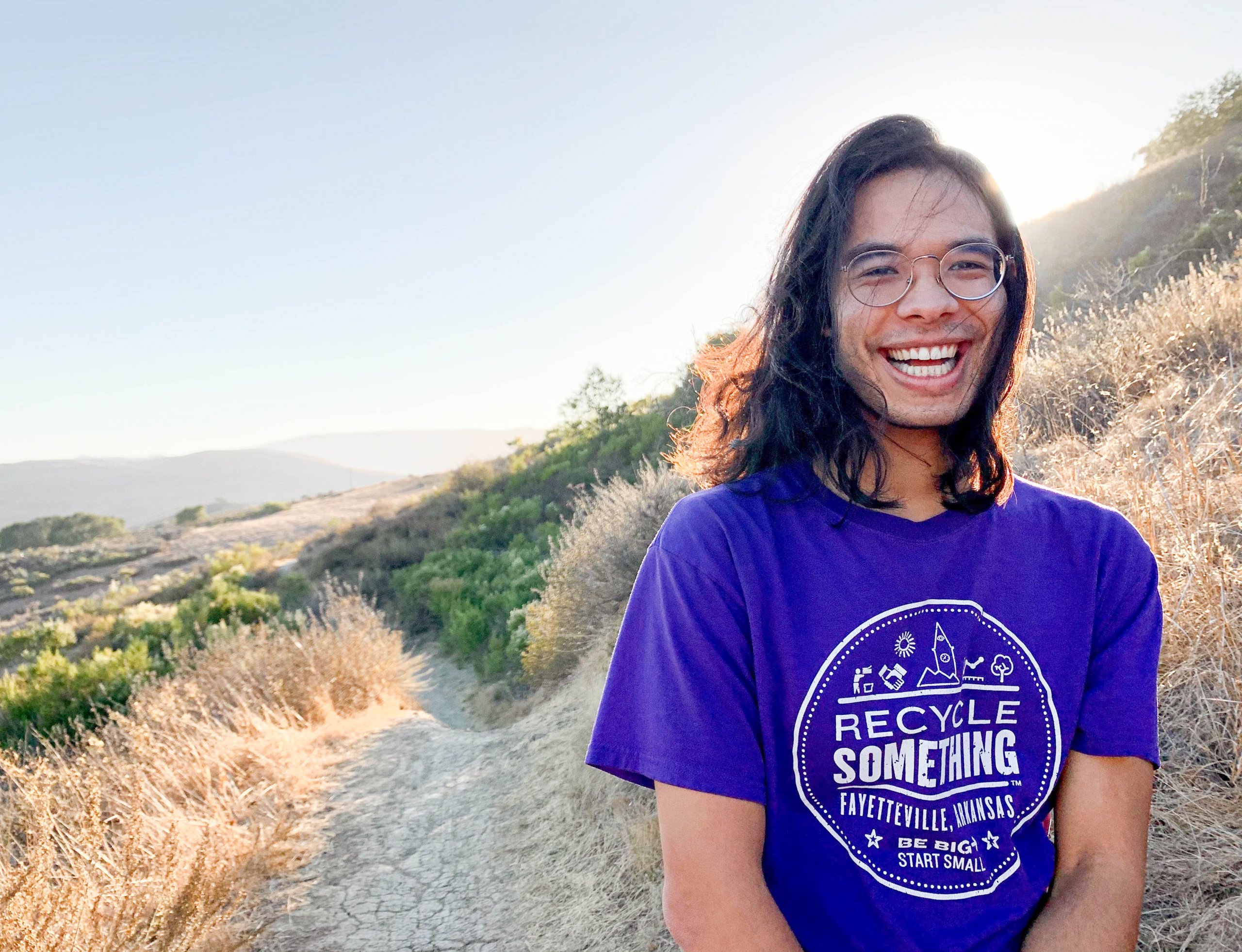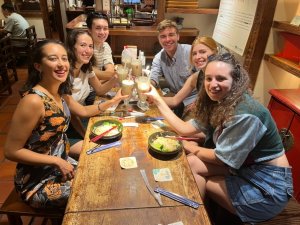You come for one thing and leave with another.
I’m sure that we’ve all experienced this before…maybe in a thrift store? Flea market?
Those teacups are just too cute to pass up (yes, they were next to the other kitchen wares, which are already my Achilles’ heel, but they caught my eye, and I had to have them).
Maybe it’s peanut candy in Tainan (台南) when you initially were craving something salty, or a nice rain jacket when you were browsing used clothes for nothing in particular (heavens, it came in handy, let me tell ya because Taiwan was wet this winter!).
But at some point or another, I feel like we all have entered some place, or some situation, with one set (or no sets!) of expectations and left that same place-situation with a different-than-expected outcome.
This miniature surprise (or maybe it’s hardly miniature, but colossal, (and maybe it’s not a surprise, but anticipated)), or turning on our heads of what we thought we could expect, changes us in some way.
Maybe it catches us off guard when we discover an interest in buying many more little charms than we could ever think we needed: teacups, house plants, peanut candy, and this new-found interest in trivial trinkets brings so much delight!
Who would’ve guessed cilantro in soft peanut candy tastes so good together?
Maybe we learn about ourselves that fourteen days spent in self-isolating solitary confinement in a quarantined hotel is an utterly unnatural thing for humans to endure. But goddammit, we did it and persevered and left that hotel room stronger than ever before, setting foot into the brave new world and thriving with each wonderful step. I know when I left quarantine for the first time, I needed to re-learn how to walk and that walking through a crowded market after two weeks of sensory deprivation was overwhelmingly delightful to the point of anxiety-induced nausea.
The point is, I had no idea how I would feel going in, but coming out was exhilarating.
Expectations turned upside-down
Breathing in the same air as three out of four of my mother’s sisters, I felt for the first time in my life what it was like to live under the same roof as people who take care of you that aren’t your mom. All of the bickering, laughing, crying, and chaos that comes with that made me realize that my momma is very much the youngest sibling. And it’s easy for me to be hard on someone who calls me and gives me shit for eating pork and makes me cry on my birthday, so I thought, “dang mom, why are you so hard on me when you were so obviously spoiled by four older sisters?”
But I see my mom’s inner child, the one who was smacked on the head by ama ( 阿嬤 grandma) with a pair of scissors so that she bled, only for being too slow to pass them when asked (or was she being punished for complaining about the haircut her sister gave her? I’m not sure—please remind me, mom). I see my mother’s father’s inner child, how he loved her and said nothing even after waiting on the train platform (月台) every day for her to come back home when she ran away in grade school.
I came to Taiwan expecting to get coddled by my aunties (and holy shit, I did!), and I left with a deeper love and compassion for my mom, having experienced first-hand their intimate sister dynamic (albeit in my mom’s absence, albeit usually as a spectator, though that didn’t shield me from the light-hearted teasing, anyways).
Outside of me, my mom has not one blood relative in the United States. I guess this means that on her side, I also only have her. Of course, she’s hard on me—she loves me!
Sure, I came to Taiwan to do “career stuff” (yes, please read that in an exaggerated, sarcastic tone), but I got something way better: heartbreak! I mean, how would I have known that ten months abroad would strain my already long-distance relationship of two years to the point where I decided to let it go? It was really heartbreaking—breakups are the worst!
It’s easy to distract yourself when you’re sad, and it’s hard to just be honest and ask, “is this gonna work out logistically?”
But once I did, I realized that by holding these overwhelming emotions close—so close that I cried myself to sleep with chest aches—I was able to really extend loving-kindness to myself and to love all of my strongest, darkest emotions with compassion.
And I guess this is what the Buddhists call enlightenment. AKA Nirvana, Eden, Shangri-la, orgasm, paradise, whatever the fuck you wanna call it.
What’s so beautiful about this is that we are never closed off from receiving this loving-kindness from ourselves and from others who love us in our lives, or even from complete strangers. Like that one time when I begged a farmer for gas in the remote mountain village of the Smangus Tribe (司馬可斯部落), or when I flew to Korea to see my friend from Chinese class that I met in Taiwan and her halmeoni (할머니grandma) taught me how to make kimchi. It’s a gentle and humbling reminder that sometimes our comfort and safety are completely in other people’s hands. Receiving kindness is one end of the tottering cosmic-karmic-see-saw. The other is hella good deeds. Lol.
See, I came to Taiwan expecting my life to turn out one way and ended up falling in love:
- resting my head against the bus window on the ride home, and the sound of the low-rumbling happening to be in the same key as the song I was listening to on my headphones
- buying vegetables from the same grannie at the market every weekend, and one day meeting her 100-year-old friend (who had no teeth, as far as I could tell, but hardly looked a day over 80. She spoke fluidly and enthusiastically in Hokkien, so I couldn’t understand what she was saying, but my grannie-veggie-dealer translated for me)
- playing Dance Dance Revolution in a noisy arcade on a Friday afternoon
- watching the clouds go by through your quarantine window
- eating every flavor of ice cream in one go (it’s vegan, so it’s healthy!)
- lying on my back in the park while staring at the undersides of trees blowing in the wind
- mourning the death of Frisky the Cat and writing his eulogy, and then finding out just now that his brother Pizza was also hit by a car weeks thereafter. Life can be cruel for kitty-cats, and why the hell don’t people in cars just slow down? Smh
Though I just literally quantified these experiences, they are unquantifiable, not in their scope, but their impact on me as a person.
Slowly but surely, I metamorphosed. I began to awaken sleeping parts of my identity. When I updated my fundamental understanding of my personality so much, it almost felt like a violent upheaval of myself. So it’s natural that this was met with some resistance from my ego, as the person I thought I was received a dramatic makeover—got his ear pierced, and bought a tank top and a bamboo hat.
But practicing mindfulness allows me to realize that this ego-death is not death at all.
I’m interested in the line between Yin(陰) and Yang (陽) because it represents the paradox of negative and positive energy coexisting within one another. Actually, it doesn’t represent the paradox. It is a paradox (Woah, mind blown, dude!). We like to describe things in terms of spectrums, but that implies a left and right side of the spectrum. How can only two dimensions encapsulate the entire realm of human experience? No. In fact, we are as vast as the stars in the Universe, linked up to take the shape of constellations, galaxies, and clusters.
Because within death, I realize that there is life.
Kissing goodbye to old parts of myself is not moving on; it is hugging them close and recognizing that they will continue to be as much a part of me as they always have been. Practicing this loving-kindness transforms painful experiences into healing. Yin (陰) is in Yang (陽) , and negative is in positive. They paradoxically are within one another, an idea referred to as inter-being in Buddhist thought.
And so, you come, for one thing, leave with another.
I came to Taiwan not knowing quite what to expect and learned that I was on a quest for infinite love… How delightful!
Managing Editor: Chih-Hsuan Tsao 曹芷瑄





